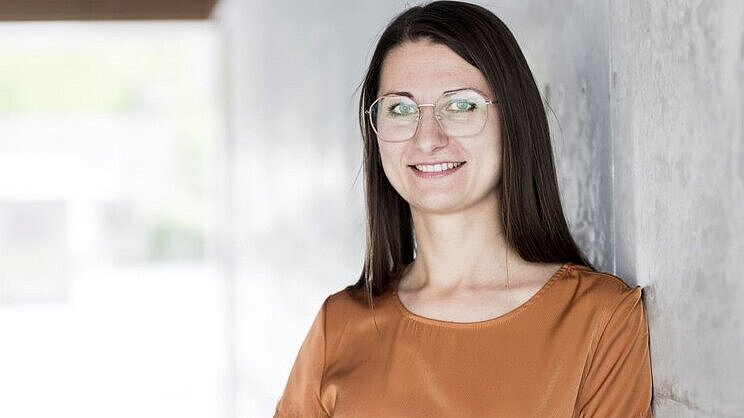
Upcoming Academics

Margarita Gutjar is doing her doctorate to bring about sustainable change in transport
Margarita Gutjar (31) lives in Bad Kreuznach and is doing her doctorate in Wiesbaden at the Hochschule RheinMain in the Department of Architecture and Civil Engineering. She began her doctorate, which is being carried out in cooperation with the Technical University of Berlin in the field of transport, in August 2020. She is conducting research in the project ‘Clever! Electric City Rüsselsheim’ project as part of the accompanying social science research under the supervision of Prof Dr Matthias Kowald. Gutjar previously studied a Bachelor's degree in Sociology with a minor in Psychology at the University of Mannheim, before completing her Master's degree in Sociology and Social Research at the University of Cologne.
Knowledge for innovation within society
‘I decided to do my doctorate at RheinMain University of Applied Sciences because I wanted to conduct applied research. I not only find it interesting to generate new knowledge, but also the aspect that findings are applied in a socially relevant way,’ says Gutjar. The interest in the benefits of her research can also be clearly seen in the title of her doctoral thesis: ‘Utility and perception of political bonus and malus factors to promote electric mobility in Germany’.
In her doctoral thesis, Gutjar investigates the effect that certain factors such as the price of petrol, electricity at charging points and the environmental bonus have on a household's decision to purchase a car, i.e. when do people decide to reduce their annual mileage, remove an existing car from their household fleet or replace it with an electric car? ‘We urgently need to decarbonise transport. I am therefore particularly interested in the extent to which political pricing is necessary to motivate households to reduce the use of their cars,’ says Gutjar, explaining the motivation behind her work. In order to reduce CO2 emissions, electric cars, among other things, are being subsidised. To this end, Gutjar is investigating people's preferences with regard to the design and configuration of charging points. The doctoral student is also scrutinising socio-psychological factors, such as people's personal attitudes towards electric cars.
Ambitious goals
Gutjar wants to use her work to drive social change, which can be achieved through political measures, among other things. Her findings provide recommendations for action, for example for the design of petrol prices, electricity prices, the environmental bonus and public transport prices. Recommendations for communication campaigns regarding the reduction of annual mileage and the switch to an electric vehicle result from the findings of the socio-psychological factors relating to personal attitudes towards electric cars. Gutjar also argues in favour of a homogeneous design of charging stations for electric vehicles in order to increase user satisfaction and reduce barriers. She wants to use her extensive research to make clear recommendations to policymakers to drive forward the mobility transition in the long term, which is what inspires her about her doctorate.
Gutjar is also planning to continue her academic work in the future and is aiming for a post-doctoral position in the mobility sector. ‘However, I would like to focus more on public transport and cycling in the future, as I can identify better with them,’ says Gutjar. She is also toying with the idea of offering consultancy services for the planning and implementation of social science surveys in the field of mobility.
Exchange is the key to success
She advises other doctoral candidates to find a topic or methodological approach that motivates and drives them. After all, a doctorate also involves difficult phases. She is driven above all by her enthusiasm for analytical methods and the social contribution of her work. The exchange with other doctoral students and researchers is an important opportunity not to rack your brains alone. Gutjar received valuable feedback and motivation at conferences where she presented her work. The exchange with other people helps her work to progress. Gutjar recommends a research stay for further development on a personal and professional level. ‘During my research stay at the University of Leeds, I developed a lot in terms of methodology within a short space of time. This also resulted in a valuable long-term collaboration for joint publications,’ reports Gutjar.